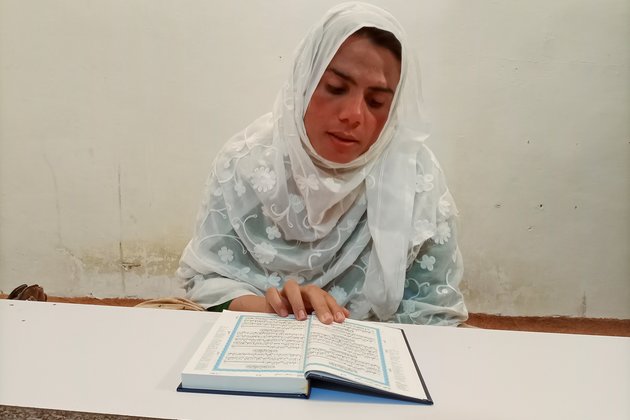Rani Khan is the founder of Pakistan’s first transgender-only madrasa, a religious school she created with her life savings.
The school represents remarkable progress in Pakistan where the transgender community has always faced discrimination.
Khan cried as she remembered how, at the age of 13, she was disowned by her relatives and compelled to beg.
She joined a transgender dance company when she was 17, and performed at weddings and other events, but she left after seeing a dream in which a dead transgender acquaintance and fellow performer pleaded with her to do something for their community.
Before opening the two-room madrasa in October, Khan read the Quran at home and attended religious schools. She believes the school has not secured federal grants, amid assurances by certain authorities to assist students in seeking employment. Along with some donations, Khan is teaching her students how to sew and embroider in the hopes of selling clothes to raise funds for the school.
In 2018, Pakistan’s parliament acknowledged the third gender, awarding them basic rights such as the freedom to vote and the freedom to specify their gender on official documents. Despite this, the transgender community remains oppressed in the world, with many resorting to begging, dancing, and prostitution to make ends meet. In Pakistan’s 2017 census, around 10,000 transgender people were registered, but trans rights organizations claim that the figure is now well over 300,000 in the nation of 220 million people.
According to Islamabad Deputy Commissioner Hamza Shafqat, the madrasa could help trans people integrate into mainstream society.
A small initiative which will go a long way in sha Allah https://t.co/k2Bo4FZnvA
— DC Islamabad (@dcislamabad) March 22, 2021










